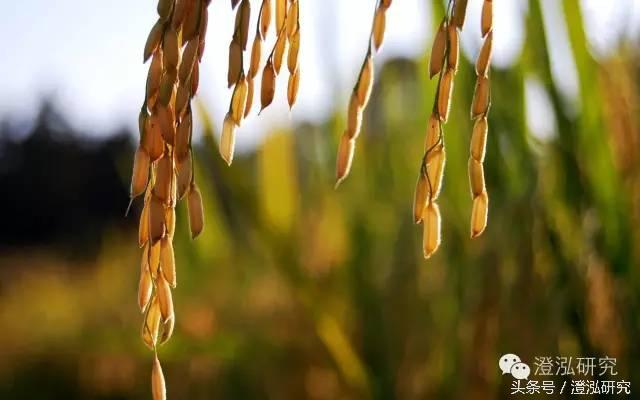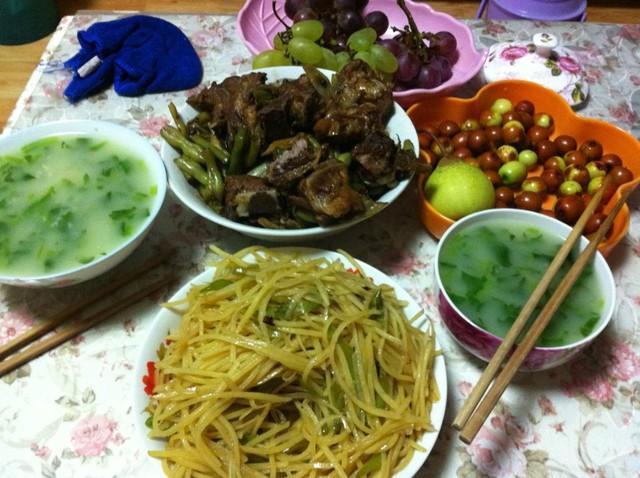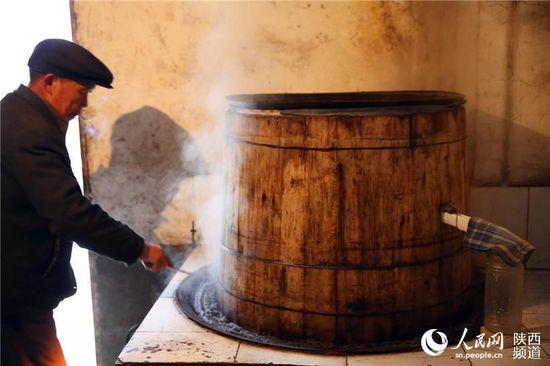Jin Xinnong: large-scale breeding drives the growth of Feed sales

Chenghong research concept: make the research report honest and make the investment easier.
Chenghong research? Big consumption studio: farmer Lao Zhang, looking back, gardenia blooming, Ling Jin (master), careless, Tiandao riding cattle
[introduction]
Starting from March last year, pig prices began to recover, but while the industry was gradually entering a high boom, the pig stock did not rise, but continued to decline. It was not until the beginning of this year that the pig stock began to bottom up. In the booming market environment, the pig stock is expected to pick up quickly in the second half of the year, thus driving feed sales.
[core focus]
1. The increase in the number of large-scale farmers leads to the increase of feed sales.
two。 The accelerated recovery of pig stocks has led to an increase in feed sales.
3. The contribution of the participating company to feed sales and investment income.
[company profile]
Gold
New Agricultural Feed was founded in 1999 and landed on the small and medium-sized board in 2011. the company is mainly engaged in the research and development, production and sales of pig feed, including suckling pig teaching trough material, pig compound premix, pig mixture and pig concentrate.
Material, in which teaching trough material and pig concentrate (including teaching tank concentrate) are its core products. The company has established the golden quality image of "Chengnong", "relaxed", "ambitious" and "Jin Xinnong" brand products, which are fully satisfied.
The nutritional needs of the majority of users for pigs at different growth stages, different levels and different needs.
[industry Analysis]
Source: choice
Since the end of 2012, the source of live pigs, Neng breeding sows, has continued to decline, resulting in a continuous decline in the national pig stock, resulting in a continuous decline in pig feed sales. however, at present, the stock of live pigs and breeding sows across the country are already on the rise.
Root
According to the data of the Ministry of Agriculture, the pig stock began to pick up slowly in March this year, and the recovery of the stock will increase the feed demand, which can also be confirmed by the data, according to Shenwan agricultural grass-roots research information, Jin Xinnong 6
The monthly sales growth rate is 52%, of which the front end is expected to grow by more than 80%. The sales growth rate in June is 6% higher than that of May 46%, and the overall sales growth rate in the first half of the year is about 35%.
10%, slightly higher than the 10% growth rate of 8% in May; Haida Group's pig feed growth rate slightly slowed to 26-28% in June, 32% in May, and more than 20% in the first half of the year; New Hope 6
Monthly feed sales grew by more than 10%, with a growth rate of 5% and 10% in May. With the accelerated recovery of pig stocks in the second half of the year, the growth rate will increase.
[benefit from the concentration of large-scale farming]
According to the data, the number of large-scale farms in China is gradually increasing.
The number of farms and the number of farms classified by column size in 2009 are as follows:
Source: China Animal Husbandry Statistical Yearbook 2010
The number of farms and the number of farms classified by annual column size in 2013 are as follows:
Source: 2014 China Animal Husbandry Statistical Yearbook
As can be seen from the above, compared with 2009, the number of retail investors with an annual column size of less than 49 decreased by 23.52%, while the number of farmers with an annual column size of more than 50,000 increased from 96 to 202, an increase of 110.42%. The number of large and medium-sized farmers is growing, although very slow, but it still shows that pig farming in China is developing on a large scale.
In the past year or two, due to the increasingly serious environmental problems, all localities have been delineating no-maintenance zones, as shown in the following figure:
Source: China Feed Industry Information Network
The above are only the prohibition programs of some provinces and cities, those who are interested can go to Baidu on the Internet, and many other provinces have such plans. It is precisely because of the poor market two or three years before these plans that the withdrawal rate of retail investors has greatly accelerated in the last two or two years, while on the contrary, medium and large-scale farmers such as Wen and Muyuan are constantly building new farms, and large-scale farming is becoming more and more obvious.
On the basis of the above two paragraphs, let's look at another set of data:
Ma Youxiang, director of the animal husbandry department of the Ministry of Agriculture, said in May that according to the data of 1.5 million commodity-scale pig farms, the pig stock increased by 0.5% in April compared with the same period last year. Among them, the stock of fertile sows increased by 6.7% compared with the same period last year, increasing for six consecutive months, while the reserve sow stock reached a new high in the past two years, an increase of 34.1% over the same period last year.
However, the national situation of breeding sows announced by the Ministry of Agriculture every month is still building a bottom, with only a month-on-month increase of 0.3% in April. Why is this so?
Combined with the above analysis of the delineation of large-scale farming and no-breeding areas, we infer that because the problem of environmental protection is becoming more and more serious, various localities have designated prohibited farming areas, retail investors have gradually withdrawn, leaving large and medium-sized farmers, so in fact, large and medium-sized farmers are constantly filling fills. however, because retail investors are constantly withdrawing, there has been no growth in sows as a whole, which can explain the contradiction between the above two data.
And
For Jin Xinnong, customers with more than 500 sows account for 30% of the total customers, but they contribute more than 70% of the sales. What is the concept of 500 heads, according to PSY15 (this number is relatively low)
Calculate, the annual column in 7500, according to 18 yuan / kg, 110kg out of the column calculation, the output value is 14.85 million, that is definitely a big farmer rather than ordinary retail investors.
Therefore, for Jin Xinnong, medium and large farmers themselves contribute 70% of their income, and so far, according to the information, it should also be medium and large farmers, so it is very beneficial to Jin Xinnong.
[impact of previous acquisitions]
Jin Xinnong has made a lot of acquisitions and equity participation in the past year, as shown in the following figure:
(1) impact on feed sales
day
Nearly 90% of the species used Jin Xinnong feed last year. The in-depth cooperation between Xinda and Dongjin was gradually carried out at the end of the third quarter of last year. At present, the feed used by Xinda animal husbandry is all provided by Jin Xinnong, with about 90% of agriculture and animal husbandry moving eastward. The New University and the year of Heaven seed
The volume of each hurdle is about 30 to 350000, and the eastward advance is about 200000. From birth to out of the column, the average consumption of a pig is about 0.3 tons of feed, that is, the new contribution is 30,000, 0.3 = 90,000, Dongjin contribution.
20: 0.3: 0.9 = 54000, a total of 144000, last year's sales of 545800, a total of 688900, this year's planned sales of 780000 tons, if for last year's stock customer sales increase
At one point, it will reach 780000 tons this year, so there is still a certain degree of confidence in the completion of this.
If the total operating cost is 2.394 billion and the operating cost is 2.153 billion in 2015, then the other expenses are 241 million. Fees grew by about 20 per cent in the first quarter of 2016, and assuming that growth was also around 20 per cent for the whole year, then other expenses were 290 million.
Assuming that the sales volume this year is 730000 tons and the gross profit per ton rises by 40 yuan to 600 yuan (there is an analysis of gross profit per ton below), the gross margin is 438 million and the excluding cost is 148 million.
(2) impact on investment income
False
Suppose 350000 Tianzong and 300000 Xinda have an average profit of 500yuan per head (500 is a conservative estimate), then Tianzi contributes investment income 35W*500*32%*8/12 (because it was acquired in early May, only
Can calculate 8 months' investment income) = 37.3 million, Xingda contribution 30W 500% 30% = 45 million, Yinghua Xinfang 50 million performance commitment contribution 0.5% 80% = 40 million, total
122 million .
[financial Analysis]
At present, the income composition of Jin Xinnong mainly includes feed, raw material trade, breeding and animal health care, in which feed is its main business, and the others are basically negligible.
Take a look at 2013-2015 income:
Source: ask for money
It can be seen that Jin Xinnong's income is basically composed of feed income, but due to the substantial increase in raw material trade in 2015, the proportion of feed income dropped to 77.31%. The reason for the surge in this part of income is that the company makes full use of national policies to reasonably predict the trend of raw material prices and distribute them in advance. From the past raw material trade income, this income is not sustainable, so the analysis of Jin Xinnong is still focused on feed.
Feed income has not changed much in the past three years, but in terms of sales volume, it is indeed increasing, due to the decline in unit price, which is mainly due to the simultaneous reduction of unit price due to the decline in raw materials. For feed enterprises, the level of unit price and gross profit margin are not the most important, because feed enterprises will adjust prices in the same direction according to changes in raw material prices, and sometimes gross profit margin per ton decreases when the gross profit margin is high, so, the most important thing for feed enterprises is gross profit per ton, which is the core, so what about Jin Xinnong's profit per ton? As can be seen from the chart below, Jin Xinnong's gross profit per ton is increasing year by year, showing Jin Xinnong's excellent profitability.
When it comes to profit per ton, we have to say that the raw materials of feed are mainly soybean meal (about 22%) and corn (54%).
Corn prices began to rise in April this year, but they are also much lower than in the same period last year, but have recently begun to fall back, as shown below:
Source: Zhi Nongtong
However, we believe that there is no driving force for corn to continue to rise in price, on the contrary, there is a driving force for continuous price reduction, because a few years ago, in order to protect farmers' income, the state often came forward to prop up the market and carry out temporary storage acquisitions, which made the current corn treasury inventory high. This year, the temporary storage acquisition was cancelled and turned into a market price transaction, and the state directly subsidized farmers in the case of marketization. However, the price of foreign corn is much lower than that of domestic corn, so domestic corn has the motivation to move closer to the international market price.
Although soybean meal began to rise rapidly at the beginning of the year, as mentioned above, feed prices will rise with the increase in the price of raw materials. Since the beginning of the year, feed enterprises have seen two rounds of price increases, with Jin Xinnong rising by about 50-200 yuan per ton. although since June, pig prices have been falling all the way (now they have begun to pick up slightly), but in terms of absolute prices, the profits of breeding enterprises are still very rich. Compared with some time ago, it is only a matter of earning more and earning less, so when the profit is relatively high, it will not be so sensitive to the price of feed.
[major shareholders reduce their holdings]
Recently, Chengnong Investment, a major shareholder, plans to reduce its holdings by no more than 10.8454% and not less than 32.5362% after reduction. The proportion of reduction is very large, which is worth studying deeply. Is it because the major shareholders are not optimistic about the development of the company? Or something else.
The picture above shows a large number of shareholders of Chengnong Investment, and according to the Partnership Agreement, the partners' meeting is the highest authority of Chengnong Investment, and none of the individual partners can control Chengnong Investment alone, and the dispersion of shareholders is also the reason for this reduction, as follows:
Let's take a look at Chairman Chen Junhai alone:
In Chengnong Investment, after internal equity transfer (checked by the National Enterprise Credit Information publicity system, Chengnong's registered capital has remained unchanged at 10 million before and after the equity change in 2014, but the shareholding ratio of different shareholders has changed. therefore, it should only be internal equity transfer), Chen Junhai's shareholding ratio increased from 31.99% to 38.39%. After the reduction of Jin Xinnong, the investment income will be distributed to the partners, which does not rule out the possibility that Chen Junhai will continue to increase the proportion of shares held by Chengnong through internal equity transfer.
In listed companies, in 2015, after directly increasing the company's shares and participating in the fixed increase (other executives also participated in the fixed increase, Chengnong himself was not involved), the cumulative direct holding of the company's shares increased by 3.78%.
Therefore, as can be seen from the above, Jin Xinnong executives are still very confident in Jin Xinnong, and this reduction is only because some people within Chengnong Investment have the idea of withdrawing from the company. if the withdrawal of these people increases Chen Junhai's control over Chengnong, it is not a bad thing.
[summary]
Compared with the previous high of 23.23 yuan, the stock price has fallen by 26%, while the increase in the number of large-scale farms is expected to accelerate the recovery of pig stocks in the second half of the year and the contribution of the participating companies to the performance, which is expected to make the company's performance continue to maintain high growth this year. According to our previous calculation, this year's feed contribution is 148 million, and the participating companies contribute 122 million of the investment income, a total of 270 million, corresponding to the current market value. The valuation is 24 times.
[risk Tip]
1. The recovery of pig stock is slow, affecting sales
two。 The continuous decline in pig price in the second half of the year will affect the income of the participating companies.
3. The impact of substantial reduction of Major shareholders on Stock Price
4. The price of raw materials has risen too much, enterprises can not effectively transfer to downstream farmers.
[disclaimer]
Disclosure of interests: some members of the studio already hold the stocks or other portfolios involved in this article.
The information in the studio's series of reports comes from public materials, and we do not guarantee the accuracy and completeness of this information, nor do we guarantee that the information and recommendations contained will not be changed. We have made every effort to report the content.
Is objective and impartial, but the views, conclusions and suggestions in this article are for reference only, and the information or opinions in the report do not constitute a bid or levy for the sale and purchase of the securities mentioned above. Any investment decisions made by investors on this basis have nothing to do with the company, the studio and its subordinate authors.
Cheng Hong studies the concept of big consumption studio: we pay attention to logical clear, reasonable and well-founded analysis, pursue and explain forward-looking views, do reliable analysis, not grandiose, not impatient. We take the company value as the research basis, take the time as the trading choice, do research attentively, and invest patiently. We are a team in pursuit of steady return on investment.
The copyright of this article belongs to Chenghong Finance. Chenghong Finance reserves all rights to this article. If you want to use this article or part of it, please contact QQ:599910746. Violators will be held responsible in accordance with the law.
This article is original by the number one author of the headlines. Unauthorized reproduction is not allowed.
Related
- A course of planting techniques and methods on how to grow carrots
- How to plant the latest tulips?
- Is it better to pick tea in the morning or in the afternoon? When is the best time for tea to be picked? what is the third or fifth tea?
- Launch Yuanxiao Happy combination Haocha + Tea Yuan healthy Taste
- Penghu Tourism "Fireworks 20 Parade with You"
- 2022 West Lake Happiness holds "Digital Revitalization Voucher" and draws iphone13 and laptop.
- Banqiao Fuzhou social houses are designed to change start-up combined with police elimination to create a safe and livable environment
- The convenient measure of "mechanical weeding" in Xinbei has been abused and the Agriculture Bureau has imposed heavy penalties on the illegal land consolidation.
- Changgeng University Joins Hands with Four Memory Factories to Rescue Memory Talent Shortage
- The list of Taiwan's top 100 MVP managers is listed by the Director-General of the Farmers' Association of Sanxia District.



